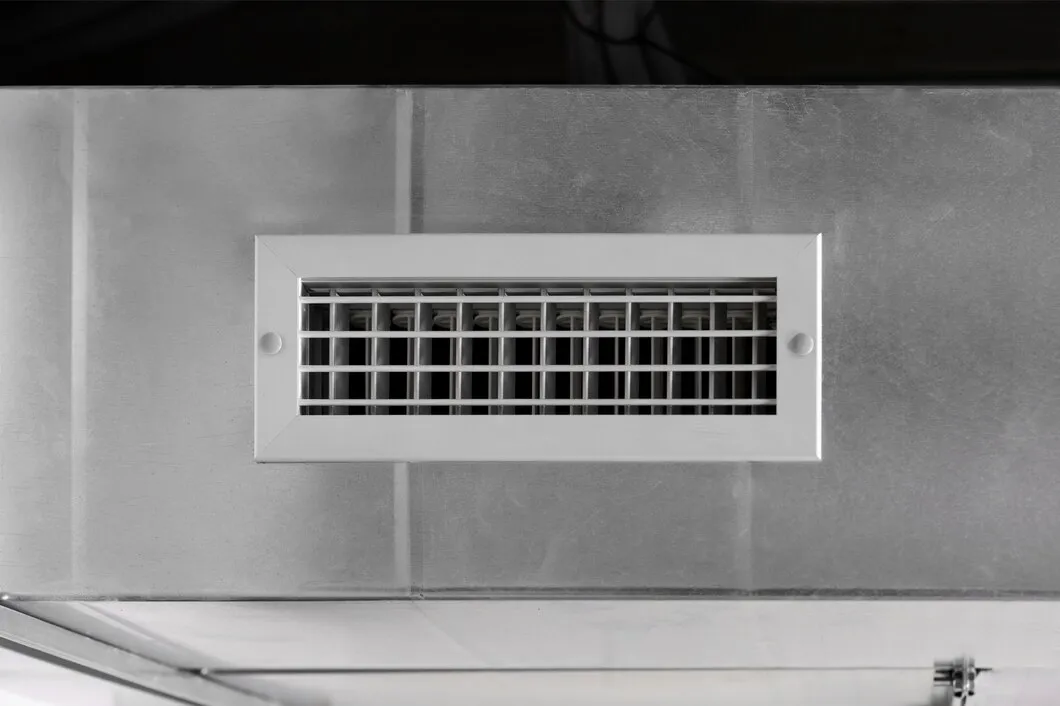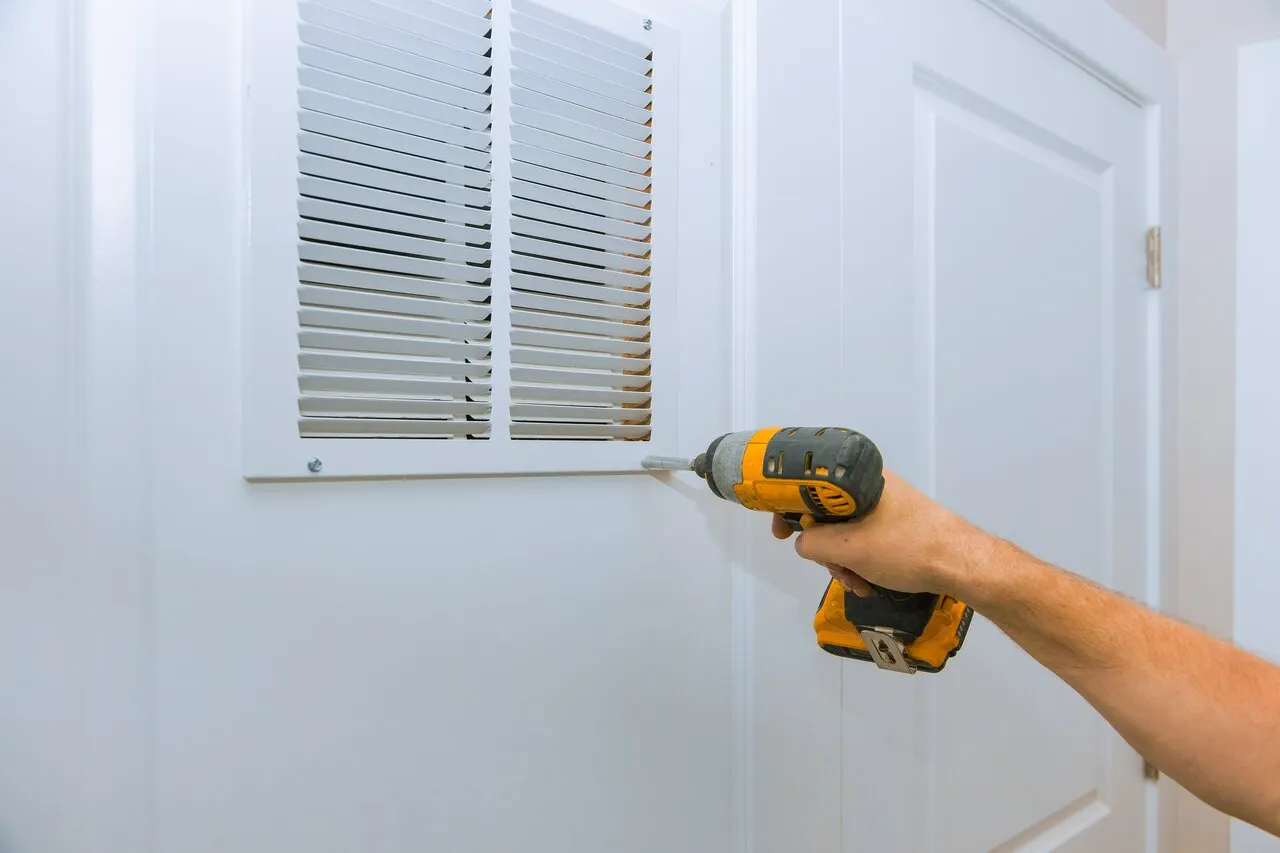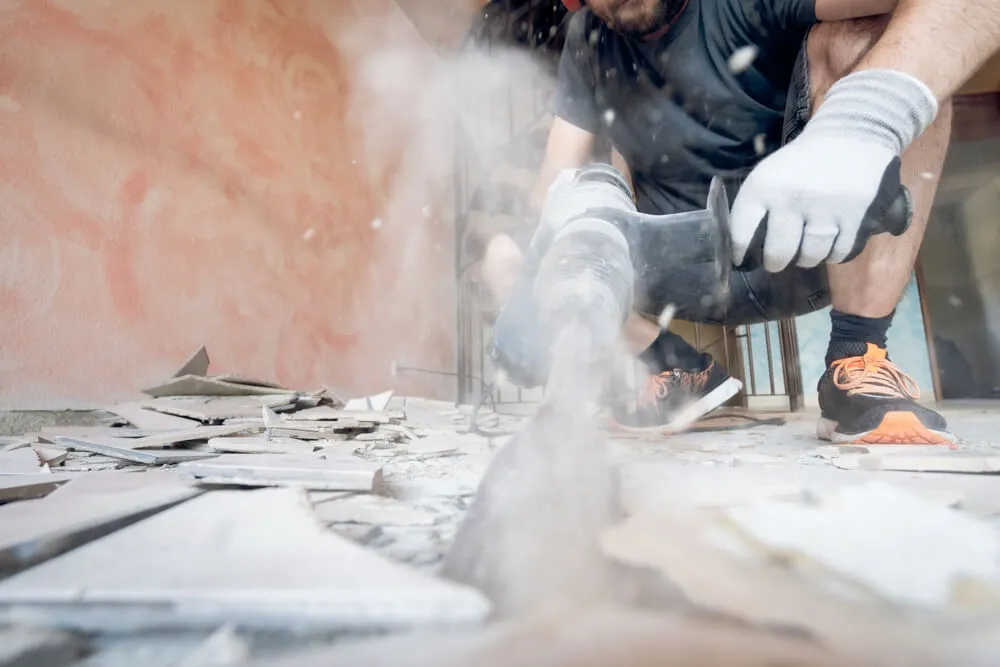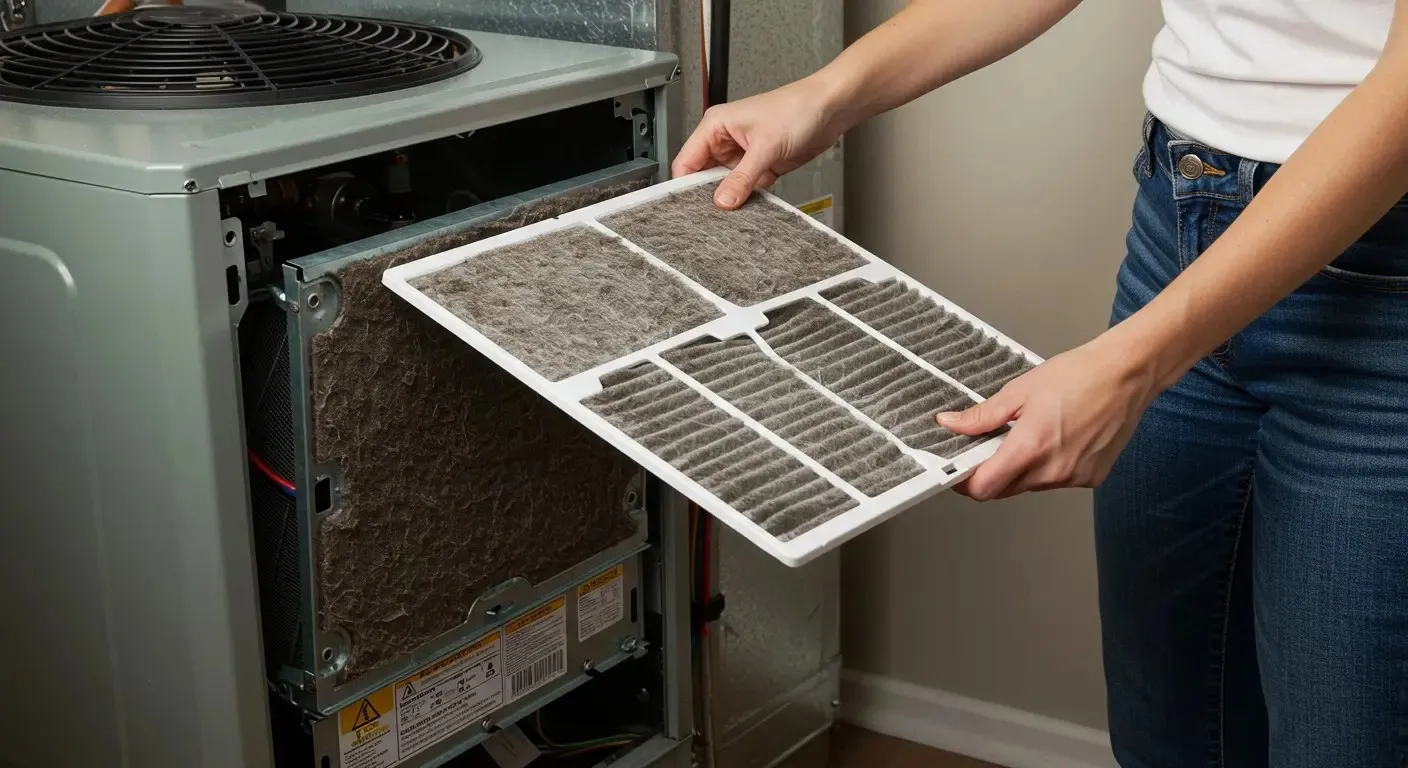
Superior Air Duct Cleaning Looks At Water Damage, Part 2
In our previous blog, we talked about the causes of water damage and the first steps to take if it happens to your home. Today, we expand on this topic and dive deeper into how to handle leaks, seal your duct system and more — read on for more from the professionals at Superior Air Duct Cleaning.
Related Post: Superior Air Duct Looks at Water Damage, Part 1
Clogged Drain Lines
First, it’s necessary to determine what causes leaks in your HVAC system — clogged drain lines. A natural part of your air conditioning system is water. As hot, humid air is cooled, it creates condensation on the evaporator coil. The condensation then drips down into a pan, which is emptied outside through a drain line. Sometimes the drain line becomes clogged or damaged, which will cause HVAC leaks. It’s important to check drain lines monthly to ensure they are clear and draining properly.
Signs Of Leaks
Next, homeowners should be aware of certain indicators that a leak is present in the air ducts.
Signs of leaky or poorly performing air ducts include:
- Your utility bills in the winter and summer are above average
- Certain spaces or rooms are difficult to heat or cool
- Ducts are located in an attic, attached garage, crawl space or unheated basement
The best way to prevent water damage is to check your system regularly. If you see water on the floor by your unit, this is also a sign of a leak or clog. If you suspect water damage, consult an HVAC professional to make sure that your system is being managed safely.
Ductwork And Insulation
After significant exposure to water, you must replace the insulation and air filters in your HVAC system. The moisture, dirt, debris and other contaminants that get trapped can create unsafe conditions following water damage. The air ducts and vents should also be checked for any dirt or debris that got inside during the flood or storm. Additionally, the aluminum walls of the ductwork should be thoroughly disinfected.
Related Post: How to Prevent Buildup in Vents
Duct Sealing
The combination of air pressure and air duct leakage can lead to a loss of energy in an HVAC system. Sealing leaks in your air ducts increases energy efficiency and prevents the entry of hazardous elements into the air duct system. It is advised to seal behind the registers where the duct meets the wall.
Tips For Minor Duct Repair
If you are a homeowner, you can check your duct system for air leaks. Look for sections that should be joined but have separated and search for other holes and gaps. Instead of using standard duct tape, we recommend duct mastic because it’s more durable. You could also use a good quality heat-approved tape to bridge gaps that are over a ¼ inch.
Besides sealing your ducts, the simplest way to sustain your duct system is to remove any furniture or other objects that could be blocking the airflow through your registers. Minor duct repairs can be relatively easy to make, but larger repairs to your duct system will usually require a professional.
Contact Superior Air Duct Cleaning Today
If you have experienced water damage, let our duct cleaning services be your solution. Our vacuum truck carries a 195hp motor to ensure powerful cleaning and the best air quality. We are committed to providing truly superior service in your home. For pricing quotes and more information, contact the qualified professionals at Superior Air Duct Cleaning.

Customer Reviews





Solving Poor Airflow Issues in Gibsonia Dryer Vents

Why Your Canfield Home Feels Stuffier in Summer: Duct Problems

Addressing Excessive Dust in Your Coraopolis Office Building

What Whistling Sounds from Your Wexford Vents Indicate

Combating Summer Humidity with Clean Air Ducts in Youngstown

Troubleshooting Burning Smells from Your Ellwood City Dryer Vent

How Restaurant Duct Contamination Affects Food Quality in Cranberry Township

Addressing Musty Odors from Your Canfield Air Ducts

Why Your Air Ducts in Wexford Are Making Popping Sounds

The Hidden Dangers of Lint Buildup in Youngstown Dryer Vents

Why Your Energy Bills Rise with Dirty Vents

Solving Common Dryer Performance Issues in Austintown

Fixing Uneven Airflow Problems in Wexford Homes

Why Your Austintown Dryer Is Overheating: Vent Obstruction Signs

What Makes Professional Duct Cleaning Different in Youngstown

Managing Spring Allergies with Clean Air Ducts

Slow-Drying Clothes: A Sign Your Dryer Vent Needs Attention

Signs of Animal Nesting in Your Ellwood City Dryer Vent

How Poor Duct Maintenance Affects Your Canfield Home

Removing Pet Dander from Your Home's Air Ducts

Common Causes of Air Duct Leaks in Older Homes

Why Dust Keeps Appearing in Your Coraopolis Home

How Dirty Ducts Impact Your Business Operations

Why Your Gibsonia Dryer Takes Longer to Dry Clothes

How Often Should Wexford Homeowners Clean Their Ductwork

Warning Signs Your Dryer Is Not Venting Properly

Black Spots in Air Vents: Addressing Mold Growth Problems

What Happens During a Professional Ductwork Inspection in Mars

Spring Cleaning Your Air Ducts: What You Need to Know

The Link Between Breathing Problems and Dirty Air Ducts

Health Benefits of Clean Air Ducts for New Castle Residents

How to Spot Dryer Vent Blockages in Your Youngstown Home

Air Quality Issues in Office Buildings: When to Clean Commercial Ducts

Common Air Quality Problems That Duct Cleaning Solves in Wexford

Strange Noises from Your Dryer Vent: What They Mean

What Air Pollutants Can Professional Duct Cleaning Remove in Canfield

How Clogged Dryer Vents Increase Fire Risk in Sewickley Homes

Understanding the Benefits of Professional Dryer Vent Cleaning

How Air Duct Cleaning Can Improve Your HVAC System Efficiency

Why Regular Duct Cleaning is Essential for Home Air Quality

The Necessity of Commercial Duct Cleaning Explained

Duct Disinfecting & Deodorizing

Preventing Home Hazards with Our Dryer Vent Cleaning Services

How Air Duct Cleaning Boosts Indoor Air Quality

Understanding the Role of a Duct Cleaning Company in Home Maintenance

Why You Need Our Skilled Duct Cleaning Professionals

The Steps Our Technicians Follow in Ductwork Cleaning

Benefits of Whole House Sanitizing for Healthier Living

Why Dryer Vent Cleaning is Important for Home Safety

Whole House Sanitizing: Keeping Your Home Safe and Clean

When to Schedule Air Duct Cleaning for Optimal Performance

Dryer Vent Cleaning: Essential for Preventing Fires

The Impact of Commercial Duct Cleaning on Workplace Health

How Air Duct Cleaning Enhances Your Home's Atmosphere

Whole House Sanitizing: Ensuring a Healthier Living Space

Preventing Risks with Our Dryer Vent Cleaning Services

How to Know When Your Home Needs Our Duct Cleaning Services

Essential Reasons for Scheduling Air Duct Cleaning Today

Prevent Fire Hazards with Professional Dryer Vent Cleaning

Understanding the Importance of Air Duct Cleaning Services

How Professional Dryer Vent Cleaning Prevents Home Fires

The Importance of Regular Dryer Vent Cleaning for Home Safety and Efficiency

The Process and Benefits of Thorough Ductwork Cleaning

The Benefits of Air Duct Cleaning Services for Your Home

The Benefits of Commercial Duct Cleaning for Your Business

Understanding the Difference Between Residential and Commercial Duct Cleaning Services

Guard Against Germs: The Advantages of Whole-House Sanitizing Services

The Impact of Residential Duct Cleaning on Indoor Air Quality and Overall Health

Enhancing Workspace Health: The Benefits of Routine Commercial Duct Cleaning

How Regular Duct Cleaning Can Impact Your Home’s Energy Efficiency

Strategies to Maintain Air Purity in Large Workspaces Through Commercial Duct Cleaning

Comprehensive Guide to Reducing Allergens with Professional Duct Cleaning Techniques

Freshen Your Space: Professional Duct Disinfecting and Deodorizing Explained

Maximize Home Air Quality with Professional Residential Duct Cleaning

Experience Superior Whole-Home Disinfection Services for a Cleaner, Healthier Environment

Importance of Regular Dryer Vent Cleaning for Safety and Efficiency

Commercial Duct Cleaning: An Investment In Your Business' Health And Success

How To Prevent Mold Growth In Your Air Ducts: Expert Tips For A Healthier Home

Is Mold Always Visible?

The Most Common Questions About Dryer Vent Cleaning: Answers From the Experts

The Ultimate Guide To Residential Air Duct Cleaning: Enhance Your Home's Air Quality

How Often Should You Clean Your Air Ducts?

Managing Pet Ordors Dender

What Does An Air Duct Inspection Include?

How to Choose a Duct Cleaning Company: 10 Questions to Ask

4 Ways Your Dirty Air Ducts Are Costing You Money

Top Benefits Of Air Duct Cleaning For Universities & Schools

A Guide To Air Duct Cleaning Equipment

Is Sanitizing Air Ducts Worth The Money?

4 Dangerous Warning Signs Your Dryer Vent Is Clogged

Easy Ways To Keep Your Home Mold Free

How Whole Home Sanitization Staves Off Fall Allergies

DIY Guide To Attic Insulation Removal: Tips And Tricks
.webp)
5 Must-Know Facts Before Buying Air Duct Cleaning Services

Air Duct Cleaning Tips After Home Renovation Or Construction

Natural Home Deodorizing Tips To Kill Bad Odors

Superior Air Duct Covers the Top Air Duct Cleaning Scams to Avoid

How Long Will A Dryer Last?

What Causes Humidity In Air Ducts?





